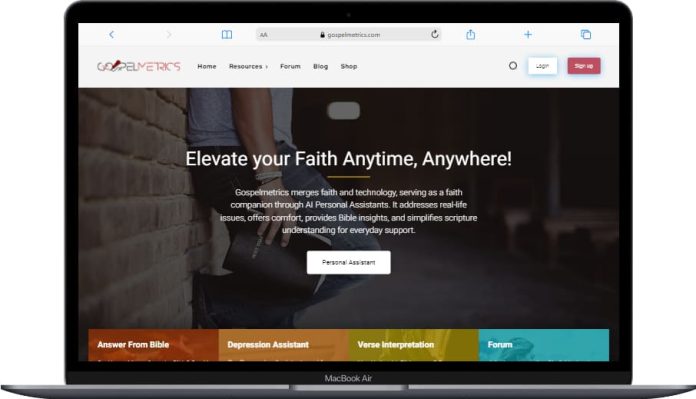[ad_1]
What is digital forensics?
Digital forensics is the term used when digital artifacts are collected from a computer system in a proper manner forensic medicine. In other words, digital artifacts such as documents, spreadsheets, photos and e-mail can be retrieved from a computer, PDA or any other type of digital device with the possibility of storage. The materials are then analyzed and preserved. This process can often be performed even if the data was intentionally erased. Digital forensics procedures allow the forensic examiner to disclose digital evidence, and displays the exact time and date for creating, installing, or downloading information, as well as when it was last accessed. Although the first computer crimes were committed in the 1970s, computer forensics is still a relatively new field. While we now have more computer and mobile device users at the time, the demand for digital forensics is increasing rapidly. Laptops, PDAs, and mobile phones that have the ability to store pictures, connect to the Internet and email, often require the need for digital forensics to determine the actions to be taken in criminal case cases, and companies There are common factors between espionage and charges related to the exploitation of children In pornography, as well as disaffected acts of terrorism and cheating behavior in spouses, they frequently use computer systems and mobile devices to help them in their unethical actions. And crimes. Evidence that these activities are easily left behind is discovered through digital forensic procedures.
Digital forensics or computer forensics?
In the past, computer forensics investigations considered computer and laptop systems the primary target of examination. During the past years, the field of computer forensics has been forced to expand its scope, tools and investigative techniques in order to keep pace with the personal technology used by ordinary citizens. Equipment such as mobile phones, PDAs, Blackberrys, and GPS devices are used on a daily basis and can contain vital information from SMS test messages, emails, phone records, and previous GPS destination coordinates. Therefore the term digital forensics has become very popular with the expansion of the field of computer forensics and includes digital analysis of new technological devices.
What can a skilled digital forensic examiner do?
A skilled forensic examiner can recover deleted files from a computer. It can see websites visited from a specific computer even after clearing and deleting browser history and cache. The digital forensic examiner can review past communications sent and received via the instant messaging and chat application such as instant messaging from Yahoo and messenger msn. The forensic process will also recover deleted or hidden photos and emails. In addition, the forensic examiner is trained to analyze deleted text messages and call logs from mobile phones, PDA devices, and Blackberry devices and recreate them.
How a private investigator can benefit from digital forensics
Digital forensics can essentially assist the researcher in several ways by identifying vital information and saving cost and time. Digital forensics techniques are often 2-3 hours able to uncover more evidence and then several days of observation and scuba diving. Data deleted from digital devices such as cell phone text messages and other verbs is often recoverable; for example, has your customer's wife had an instant messaging conversation? Can deleted emails be recovered? What sites did the suspect visit?
Several examples below illustrate how digital forensics can assist a private researcher in specific situations and tasks:
Cases of adultery:
They often use online chats or SMS messages to arrange meetings and provide a secret contact to avoid suspicions on the part of the husband.
Cases of fraud:
It is often possible to specify the time and time of the document. Unless the document is produced by a typewriter, there is always an electronic version or at least somewhere. In addition, the most popular word processor, "Microsoft Word" which is part of the Microsoft office suite, integrates metadata into each document. This metadata can provide vital information such as the identity of the author and the computer on which the document was created. The same applies to Microsoft Excel spreadsheet applications.
Tell the suspect:
When detailing the suspect, imagine how able you are to know his previous destinations before starting the mission. It is impossible to say! This is not necessarily necessary, especially if the individual has traveled by car and uses GPS. Some recent developments in digital forensics allow information to be retrieved from the most common GPS systems.
Harassment cases:
There are many different types of harassment. Often times, your customer may not only receive harassment personally, but also over the phone and / or email. A forensic examiner can keep records of phone calls from cell phones and provide them as evidence by strictly maintaining a series of detention. Every email sent from a specific source to a specific destination leaves the information embedded in that email. This information is referred to as the email header. The forensic examiner can analyze the email header and track it back to the origins of the IP address from which it was sent.
control:
When thinking about monitoring, most of them think about traditional techniques like: waste, tasks and video surveillance. However, modern computer technologies can also be a valuable asset to a private investigator. There are devices such as spyware and keystroke logging tools that will provide real-time information about what, where and when things happened on a suspect computer.
Who has the right to search for a computer or digital device?
Protection of the Fourth Amendment against illegal searches and seizures applies only to government agencies such as law enforcement. The fourth amendment does not apply to private searches. Private research can be conducted or authorized by anyone who has a legal right to data stored on a computer, such as employers or spouses. Since computers are common property, couples can give consent to conducting special research on a computer
conclusion:
In the dynamic world of private investigations, it is imperative that you adapt to new technologies and be able to provide your clients with the most competitive services. Most importantly, it is necessary to keep your customers in your domain for all their investigative needs. So training private investigators in the digital forensic art or engaging with a digital forensic expert is a necessary step in ensuring not only the stability and longevity of your company but also ensuring that it is prepared to meet the requirements of future technology requirements.
[ad_2]&


